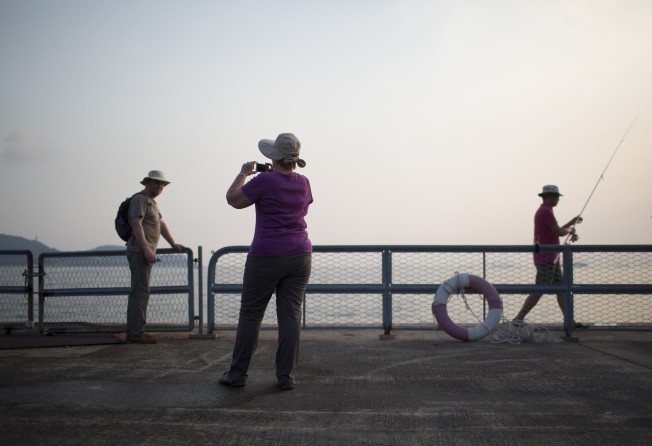Scrapping multiple-entry permits would allow Hong Kong to breathe again
Albert Cheng urges a return to the original, more stringent design of the individual visit scheme, given the vastly changed circumstances

The local retail industry has mounted a campaign to keep the individual visit scheme intact, but its economic arguments to continue to allow vast numbers of mainland visitors to come to Hong Kong do not seem to resonate with the general public.
First implemented in 2003, the scheme was hailed as a panacea for our ailing economy in the wake of the severe acute respiratory syndrome outbreak. Mainlanders' purchasing power resuscitated our tourism, retail and related sectors.
Yet, more than a decade down the road, the side effects of the influx of mainlanders can be seen, as social and cultural conflicts with local residents dominate the headlines.
Three-quarters of the 54.3 million visitors to Hong Kong last year were from the mainland. The vast majority travelled under the individual visit scheme, which enables residents of 49 major Chinese cities to come here as individual travellers instead of in tour groups or on business visas.
Mainland visitors under this scheme are permitted to remain in Hong Kong for up to seven days upon each entry. In 2009, Beijing relaxed the arrangement for eligible residents with Shenzhen household registration to apply for multiple-entry endorsements, and in 2010, some non-Guangdong residents in Shenzhen also became eligible for such permits.
The multiple-entry provision has boosted the number of frequent visitors who see Hong Kong as little more than a supermarket and a place for inexpensive recreation.
The Southern Metropolis Daily recently published a story hailing the water quality and low entrance fees of the public swimming pools in Hong Kong. As a result, the amenities are now attracting mainland families eager for a splash.
Similar tourist guides have recommended public barbecue sites and camping areas at beaches. They, too, have become popular among mainland visitors.
Our public transport and other social facilities have been stretched to the limit to cope with the influx.
Mainlanders' suitcases are typically stuffed with consumer products ranging from cosmetics to infant milk formula. In their eyes, Hong Kong products and services are synonymous with quality assurance.
The social conflict between local residents and the visitors has become so manifest that it has caught Beijing's attention. The Hong Kong government was asked to study how to alleviate local discontent. In response, Chief Executive Leung Chun-ying toyed with the idea of cutting the number of mainland visitors under the scheme by 20 per cent. The idea of limiting the number of visits allowed for multiple-entry endorsement holders to, say, 52 a year has also gained some traction.
The retail industry has taken these developments as a major threat to its survival. The Retail Management Association commissioned economist Lam Pun-lee to study the impact of a 20 per cent cut. He warned of a ripple effect on the economy. It was estimated that the economy could lose HK$40 billion a year and 10,000 jobs with such a cut to the individual travel scheme.
Lam noted that the tourism industry, which includes retailers, accounted for 4.7 per cent of our gross domestic product and the livelihood of 1.2 million people. He said the government should not ignore the indirect impact of visitors' consumption on related industries such as transport and wholesalers.
But he has overlooked several realities. Our unemployment rate has been low, at just over 3 per cent, for the past few years. Sectors such as civil construction have even been short of workers.
The jobs created by the scheme are largely unskilled sales positions. Those who would be made redundant would have little problem securing similar positions. In fact, it may be a blessing in disguise for these young people, who would be encouraged to upgrade their skills and pursue a more meaningful career.
Some mainlanders come here to work illegally, while others, as can be seen from the anti-Occupy Central protest march last Sunday, might even be mobilised to participate in local politics.
Meanwhile, the streets and shopping malls are so crowded that many local residents would rather leave the city during the holidays. This "missing" local consumption has not been taken into account in the study.
True, the sales of luxury items have fallen and the retail industry is worried that a tightening on visitor numbers would make life more difficult for it.
But the drop in sales has little to do with visitor numbers. What really matters is the Chinese authorities' ongoing stringent efforts against corruption.
The individual visit scheme has already passed its prime and its current contribution to the Hong Kong economy should not be inflated. Let's do away with the unlimited multiple-entry arrangement and revert to the scheme's original design.
Albert Cheng King-hon is a political commentator. [email protected]